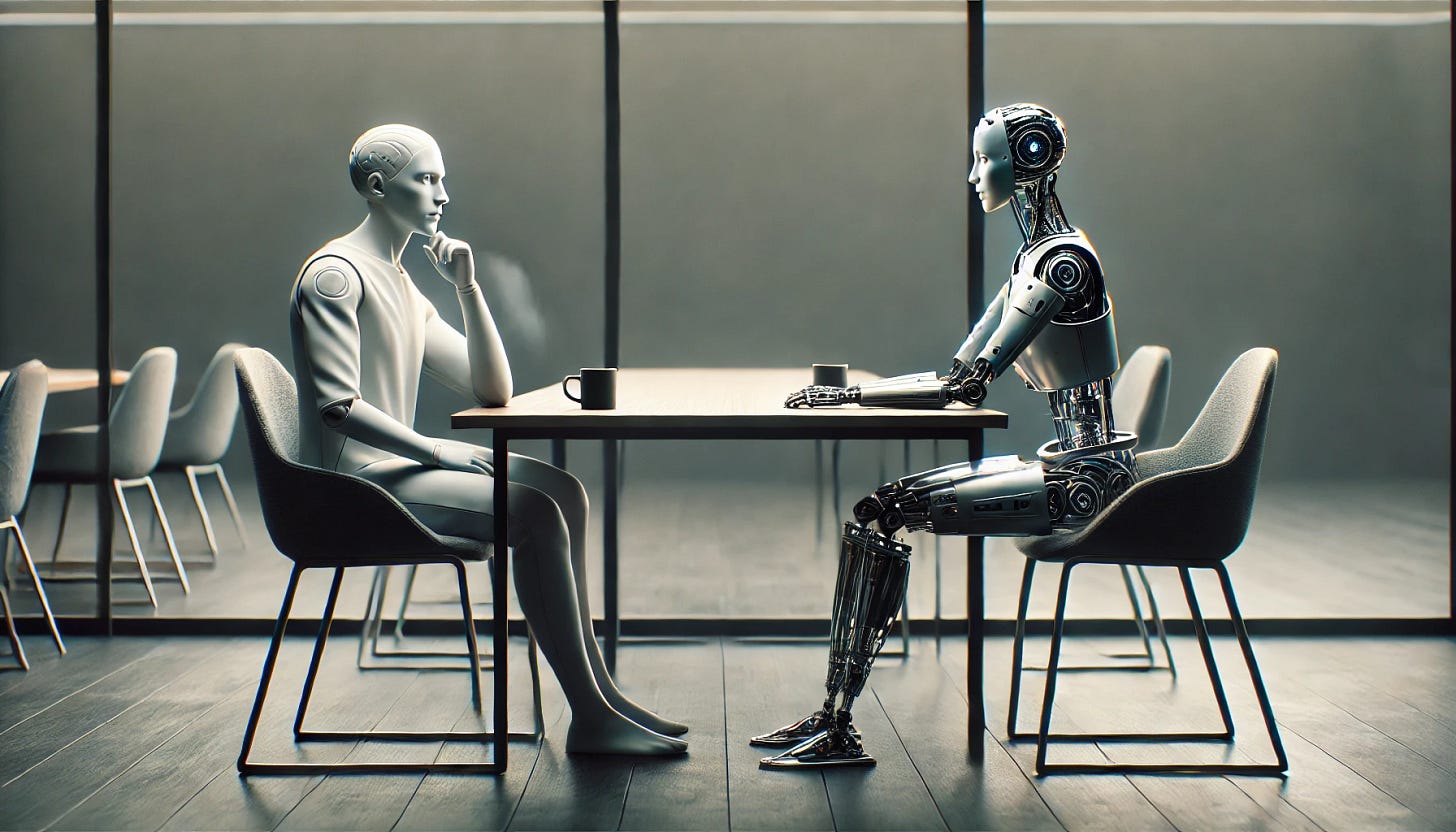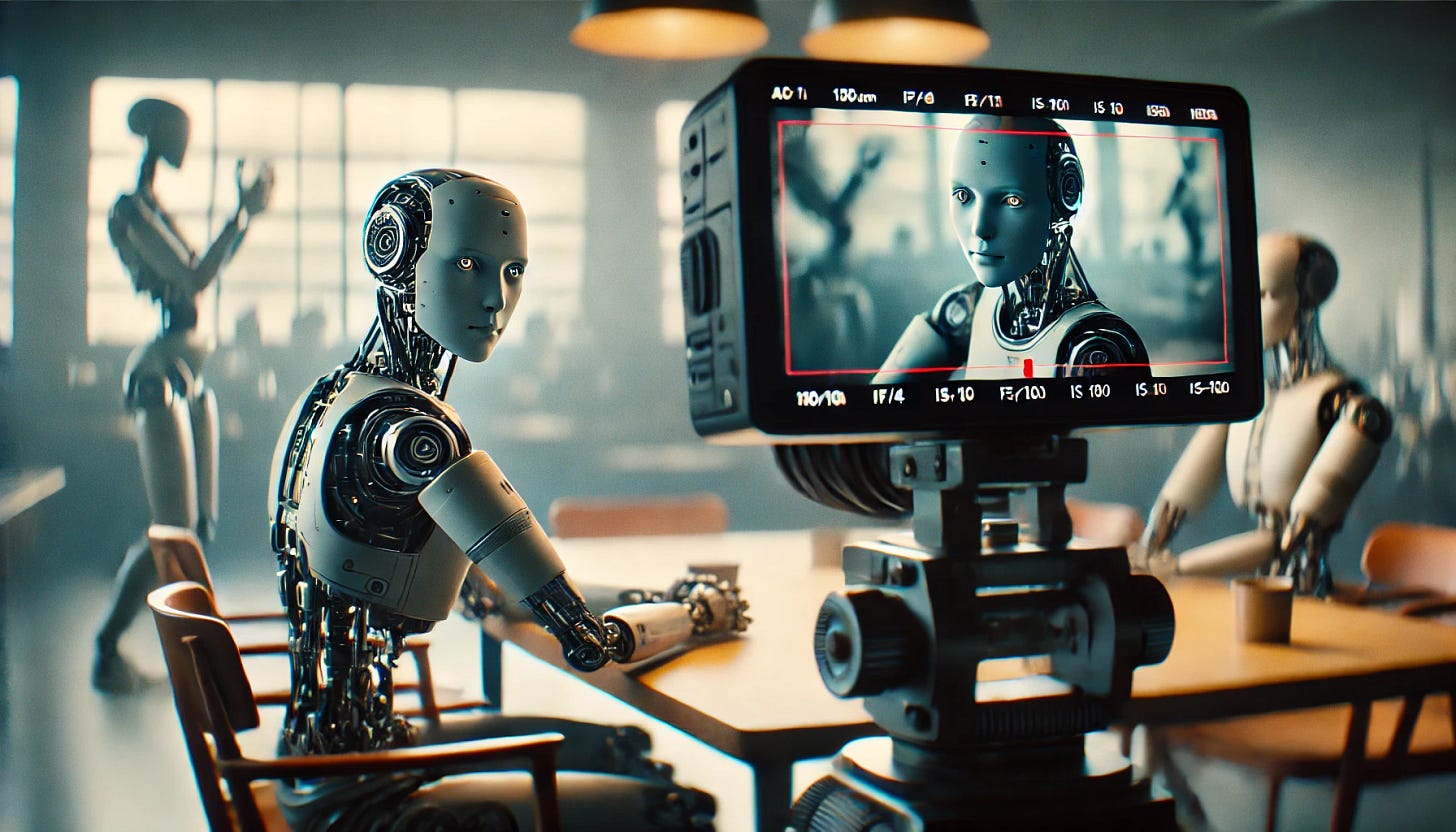How Good Is Too Good? The Surprising Power of Imperfect AI
New research shows that imperfect AI algorithms can actually boost recruiters' hiring accuracy more than near-perfect AI. Find out why "good enough" may be best when it comes to AI-assisted recruiting
In the age of AI, we often assume that smarter is better. We strive for algorithms that are lightning-fast, razor-sharp, and unfailingly accurate - the quintessential "perfect" AI. But what if perfection isn't always the goal?
An intriguing new study by Fabrizio Dell'Acqua reveals that when it comes to AI-assisted recruiting, a touch of imperfection may be the key to unlocking peak performance. By deliberately dialing back AI accuracy, the researchers found they could keep human recruiters more engaged, more discerning, and ultimately, more effective at selecting top talent.
The findings turn the conventional wisdom on its head. In a landscape where "intelligent" tools increasingly shape human decision-making, we're forced to reckon with a paradoxical truth: Sometimes, "good enough" AI is exactly what we need to bring out the best in ourselves.
So what does this mean for the future of recruiting?
The Hiring Accuracy Experiment
To uncover the complex dynamics of human-AI collaboration, Dell'Acqua designed an experiment involving 181 professional recruiters. Each recruiter was asked to evaluate a set of job candidates (44 resumes) and decide whether to call them for interviews. However, unbeknownst to the recruiters, they were randomly assigned to receive AI-generated recommendations of varying levels of accuracy.
Some recruiters collaborated with a "perfect" AI that correctly predicted candidate quality more than 99% of the time. Others received advice from a high-performing AI that was correct in about 85% of cases.
A third group worked with a lower-performing AI that was accurate 75% of the time. By measuring the recruiters' hiring decisions against objective assessments of candidate skills, the study determined how AI accuracy affected human decision-making.
The results were surprising. Recruiters assisted by the lower-quality AI (75% accurate) actually made better hiring choices than those using the higher-quality AI (85% accurate).
While perfect AI yielded the best outcomes overall, recruiters working with moderately accurate AI outperformed those with no AI assistance at all. The findings suggest that there is a "Goldilocks" level of AI accuracy that enhances human judgment without replacing it entirely.
Surprising Findings: "Bad" AI Beat "Good" AI
The experiment's results challenge the assumption that more accurate AI always leads to better outcomes. In fact, recruiters assisted by the "bad" AI (75% accurate) made hiring decisions that were significantly more accurate than those made by recruiters using the "good" AI (85% accurate). This finding held true even after controlling for recruiters' individual characteristics, such as prior experience with AI or recruiting.
Interestingly, the benefits of imperfect AI were most pronounced among more experienced recruiters. These seasoned professionals were more likely to deviate from the AI's recommendations when they felt it was warranted, adding valuable human insight to the decision-making process. In contrast, less experienced recruiters tended to defer to the AI's judgment, regardless of its accuracy.
Further analysis revealed that recruiters working with the lower-quality AI spent more time evaluating each candidate and were less likely to simply rubber-stamp the AI's recommendations.
On average, they spent ten more seconds per resume and made 0.6 more clicks to view additional candidate information compared to those assisted by the higher-quality AI.
Why Imperfect AI Keeps Recruiters Engaged
The study's authors propose that very accurate AI can lead to a phenomenon called "falling asleep at the wheel." When humans perceive the AI as highly reliable, they may become complacent and less likely to critically examine its recommendations. This can result in blindly following the AI's advice, even in cases where human expertise could catch potential errors or add nuance to the decision.
In contrast, AI that is "good enough" but not perfect seems to strike a balance between providing useful guidance and encouraging human oversight. Recruiters working with the moderately accurate AI appeared to use it as a collaborative tool, considering its recommendations but also actively applying their own judgment. This engagement likely helped them to identify both when the AI was correct and when their own expertise could add value.
The study also found evidence of an inverse relationship between AI quality and human effort. As the accuracy of the AI recommendations increased, recruiters spent less time and effort scrutinizing each candidate. This suggests that there may be a trade-off between leveraging AI's efficiency and fully utilizing human skills and knowledge.
Implications for Recruiters Using AI
The study's findings have important implications for organizations looking to implement AI-assisted hiring processes. Rather than solely focusing on maximizing AI accuracy, companies may benefit from customizing their AI tools to keep human recruiters actively engaged.
This could involve deliberately introducing a small degree of ambiguity or imperfection into the AI's recommendations, similar to the 75% accurate algorithm used in the study. By signaling to recruiters that the AI is a helpful tool but not an infallible oracle, organizations can encourage a more collaborative and thoughtful approach to hiring decisions.
However, it's important to recognize that there may be an adjustment period as recruiters learn to work effectively with AI. The study suggests that more experienced recruiters are better equipped to leverage imperfect AI, likely because they have the knowledge and confidence to question its recommendations when appropriate. Organizations may need to provide training and support to help recruiters develop strategies for incorporating AI insights while also trusting their own expertise.
Ultimately, the goal should be to create a hiring process that enhances human decision-making, not one that simply defers to AI. By striking the right balance between AI accuracy and human engagement, organizations can unlock the full potential of human-AI collaboration.
The Future of Human-AI Collaboration
The study's insights extend beyond the world of recruiting and have broader implications for the future of human-AI collaboration across industries. As AI becomes increasingly sophisticated, there may be a temptation to view it as a replacement for human judgment. However, this research suggests that the most effective AI systems will be those that augment human expertise rather than supplant it.
In the coming years, we can expect a growing emphasis on designing AI that complements human strengths and compensates for human limitations. This may involve creating AI tools that are transparent about their level of certainty, provide explanations for their recommendations, or actively prompt users to apply their own knowledge to the task at hand.
Effective human-AI collaboration will require a shift in mindset from maximizing AI accuracy to optimizing joint performance. Rather than fixating on creating the perfect algorithm, the focus should be on developing systems that bring out the best in both human and machine intelligence. This will likely involve a process of trial and error as organizations experiment with different configurations of human-AI teamwork.
Imperfect Artificial Intelligence
The Dell'Acqua study offers a compelling case for embracing "good enough" AI in the context of recruiting. Rather than striving for perfect accuracy at the expense of human engagement, organizations may be better served by AI tools that provide helpful guidance while still leaving room for human judgment.
For recruiters, this means viewing AI as a collaborative assistant rather than an infallible decision-maker. By actively engaging with AI recommendations, questioning them when appropriate, and adding their own insights to the process, recruiters can harness the power of AI while still leveraging their unique skills and expertise.
The "Goldilocks" principle of AI accuracy - not too perfect, not too flawed, but just right - has the potential to transform the way we think about human-AI collaboration. By designing AI systems that keep humans in the loop and actively engaged, we can create a future in which human and machine intelligence work together seamlessly to tackle complex challenges.
Studies like this one provide valuable insights into how we can optimize the partnership between human and artificial intelligence, ensuring that we reap the benefits of AI while still honoring the irreplaceable value of human expertise.
For recruiters and hiring managers, the takeaway is clear: Don't be afraid to embrace imperfect AI as a tool for enhancing your decision-making process. By finding the right balance between AI assistance and human engagement, you can make better hires, build stronger teams, and ultimately drive your organization's success in the age of artificial intelligence.
Recommendations for Recruiters: Embracing the Power of "Good Enough" AI
On one hand, AI promises to make recruiters' jobs easier by automating tedious tasks and surfacing top candidates faster. On the other hand, they may worry that AI will eventually replace your expertise altogether.
But fear not - the Dell'Acqua study brings good news for recruiters. It suggests that your role is not only safe but more critical than ever in the age of AI. The key is to view AI not as a replacement for your judgment but as a collaborative tool that can enhance your decision-making process.
So, how can you make the most of AI in your recruiting efforts?
Here are a few recommendations based on the study's insights:
Share this article or any other article to unlock exclusive premium content (guides, strategies, insights) behind a paywall. Discover how to do it here!




